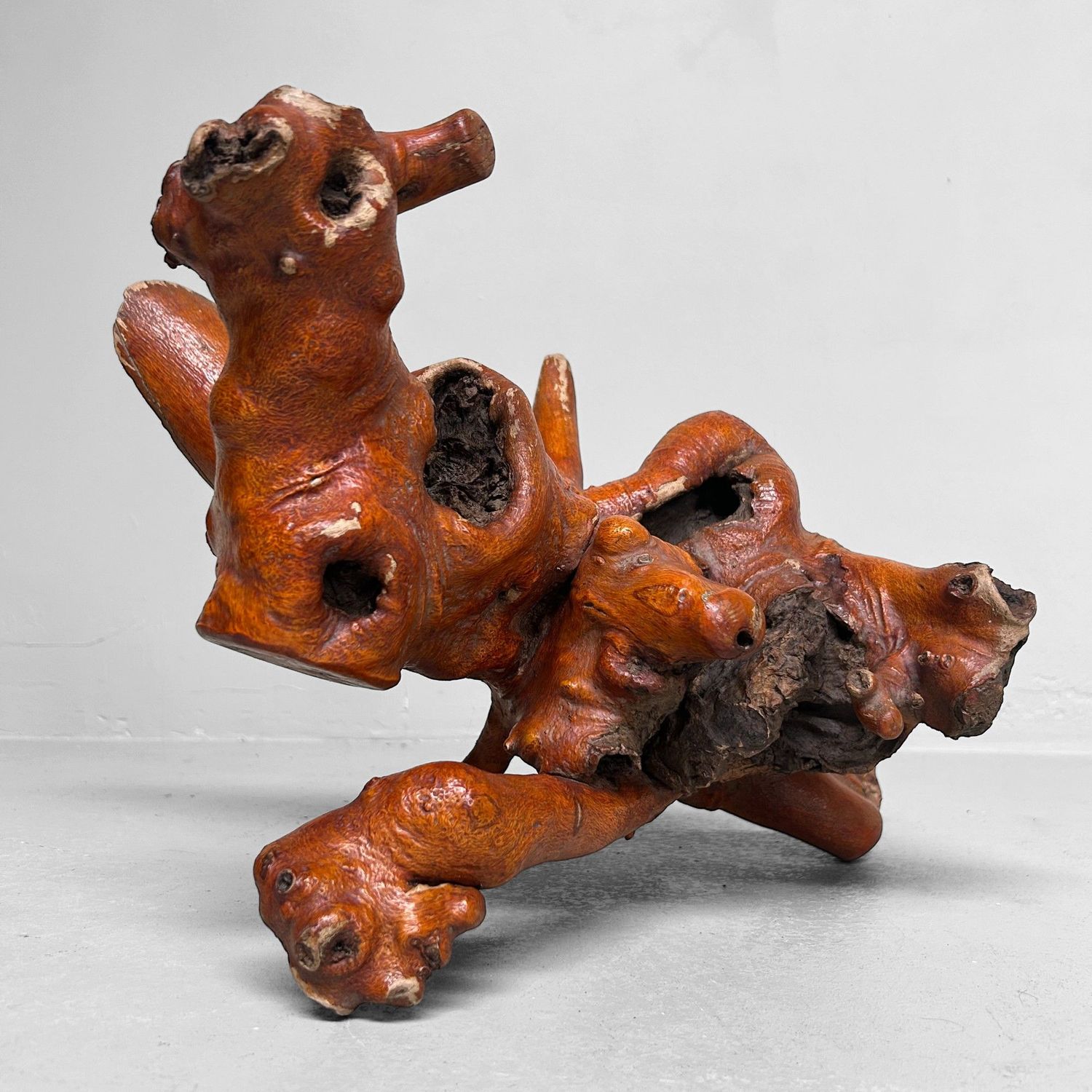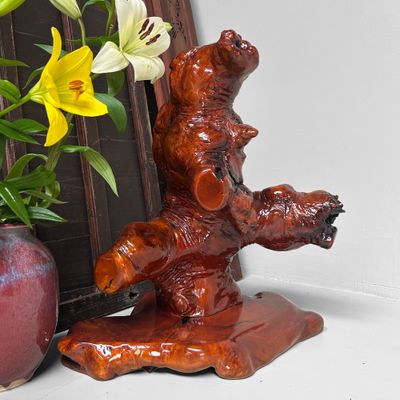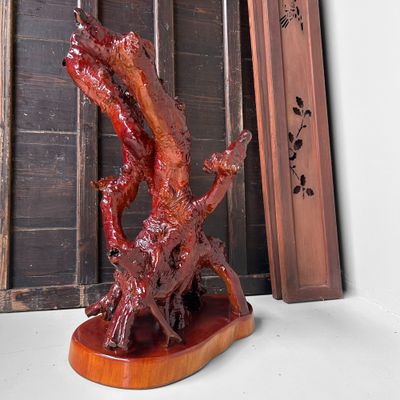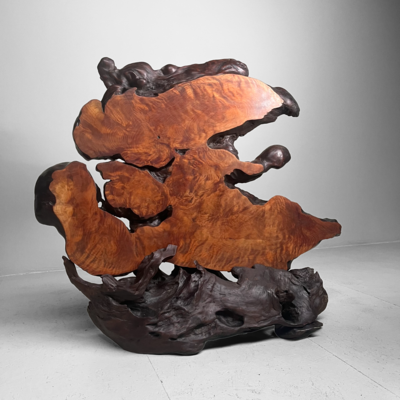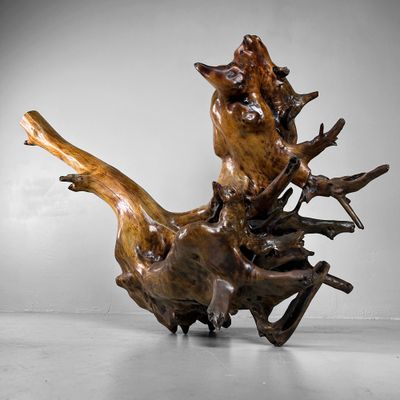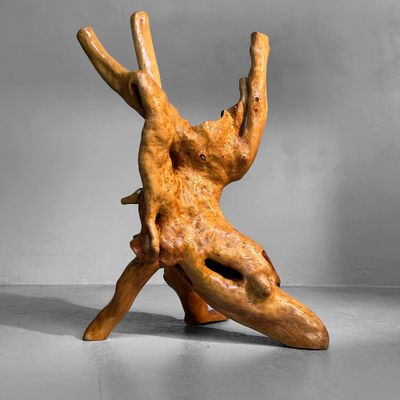Decorative Japanese Rootwood – Yamazakura, 1970s
Bring the raw purity of Japanese nature into your home with this authentic neagari (根上り) rootwood sculpture — a powerful and expressive piece that embodies the essence of wabi-sabi.
Dimensions: Height 31 cm, Width 56 cm, Depth 42 cm.
This unique object, originating from Japan and dating back to the 1970s, features a strikingly organic shape, full of natural openings, knots, and rugged textures. Unlike high-gloss polished pieces, this sculpture retains its natural, matte finish, giving it an earthy and timeless character. The exposed grain, weathered surfaces, and raw details highlight the passage of time, making it a pure representation of natural beauty.
Likely crafted from yamazakura (山桜), a wild Japanese cherry wood, known for its sturdy structure, warm reddish-brown tones, and vivid grain patterns. The matte surface enhances these textures, making the piece especially well-suited to minimalist or nature-inspired interiors.
It serves as a strong, organic base for bonsai displays, enhancing their natural aesthetic. Paired with ikebana arrangements, it offers a rough, contrasting foundation that accentuates the delicacy of floral compositions. In wabi-sabi interiors, it adds depth, texture, and quiet character, contributing to a sense of serene restraint. In modern zen spaces, it acts as a contemplative focal point — a visual reminder of nature’s imperfection and impermanence.
Traditionally, such pieces were placed in the tokonoma (床の間), a recessed alcove in Japanese homes dedicated to art and nature. They symbolize the beauty of imperfection, transience, and unpredictability — core principles of the Japanese worldview. This piece brings a sense of tangible stillness to any interior, rooted in simplicity and nature.

